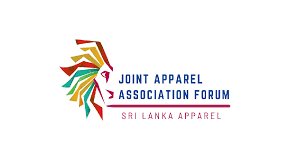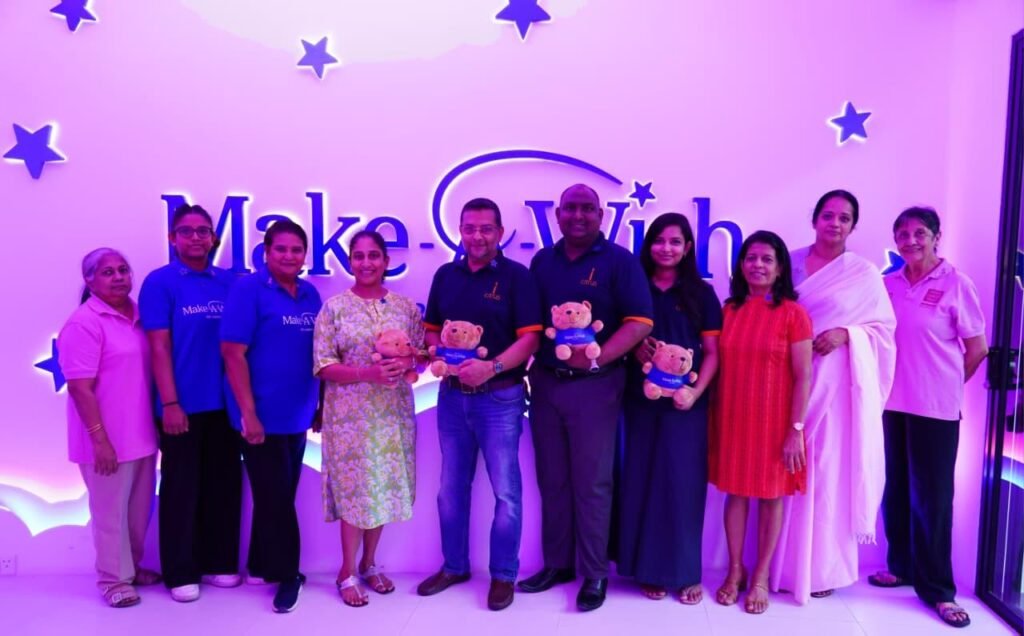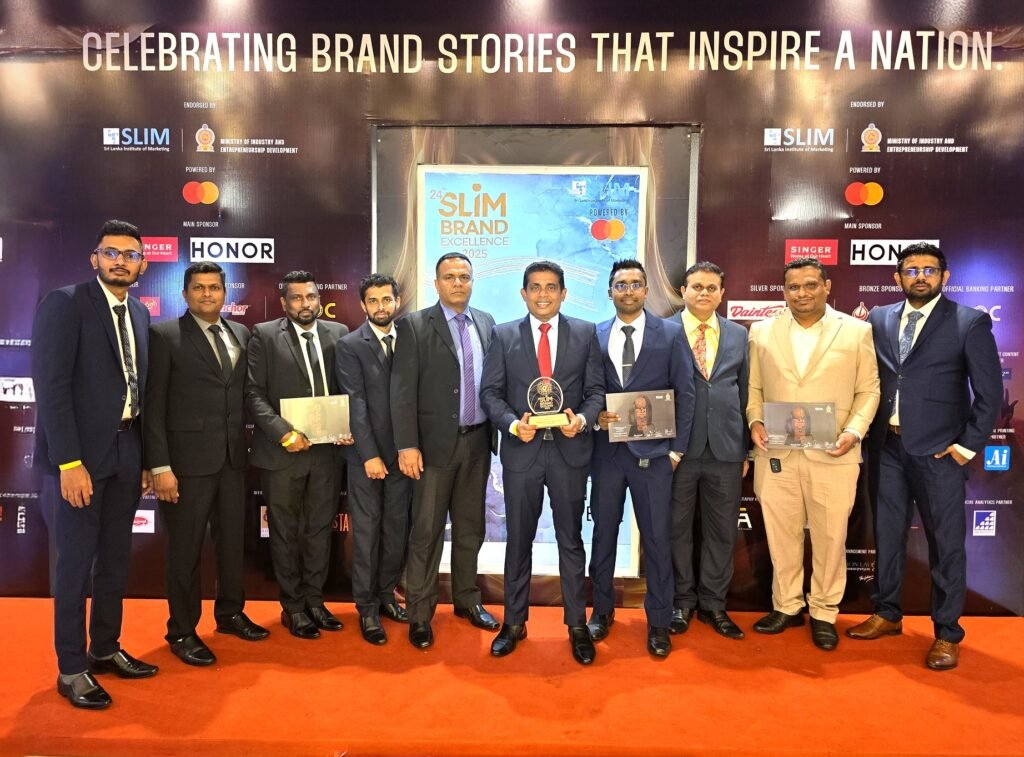- Innovative range of next-gen eco-friendly fabric dye derived from charcoal waste
- Only Sri Lankan firm ranked on the ‘Top 10 Innovations in Street Sports’ at ISPO Munich 2022
- Winner of Best Projects Sustainability Award 2022 by Ceylon Chamber of Commerce
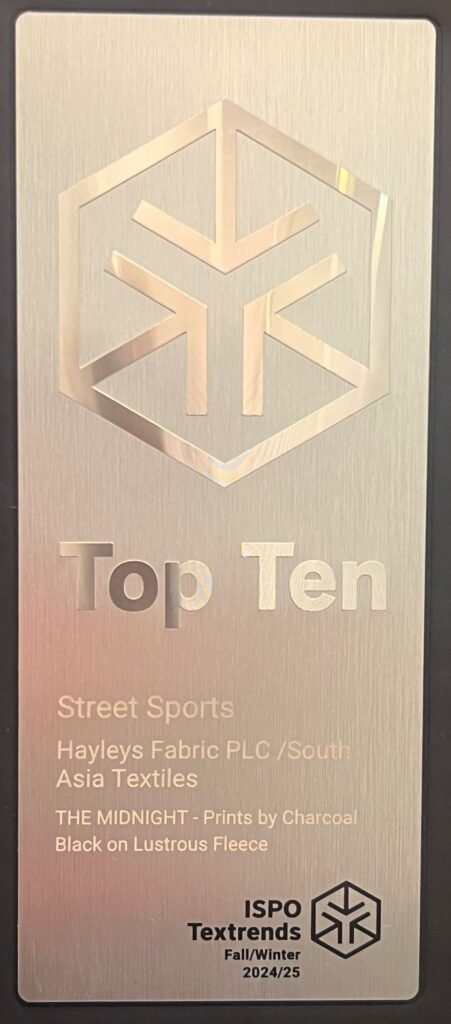
South Asia Textiles (Pvt) Ltd. (SAT), a subsidiary of Hayleys Fabric PLC is making waves in the global and local fashion industry with ‘Midnight by Charcoal’ – a novel range of textiles featuring organic dyes derived from biomass charcoal waste.
SAT’s ‘Midnight’ range gained fresh international acclaim, after winning a place among the ‘Top 10 Innovations in the Street Sports’ category at ISPO Munich – a leading German platform for discovering and showcasing the world’s most innovative, sustainable, high-performance fabrics. This is the second time in the past year that a powerful Sri Lankan innovation in eco-friendly fabric dyes has been recognized by ISPO, and both from the Hayleys Fabric Group.
Locally, the ‘Midnight’ innovation also won the coveted Best Projects Sustainability Award, at the recently concluded Best Corporate Citizen Sustainability Awards 2022 (BCCSA), organized by the Ceylon Chamber of Commerce.

“The entire team at Hayleys Fabric and South Asian Textiles is honored by the positive response following the launch of our fabric dye ‘Midnight by Charcoal’. We believe that such organically sourced, eco-friendly innovations hold the potential to create the next generation of sustainable textiles. In line with our purpose: to strengthen the fabric of society by knitting together a better environment for all, these solutions are enabling a new paradigm of circularity across the global fashion industry” Hayleys Fabric Managing Director, Rohan Goonetilleke said.
Notably, SAT was the only textile manufacturer to win at this year’s BCCSA, which is considered to be Sri Lanka’s most competitive, and highest profile platform for showcasing Environmental, Social, and Governance (ESG) leadership.
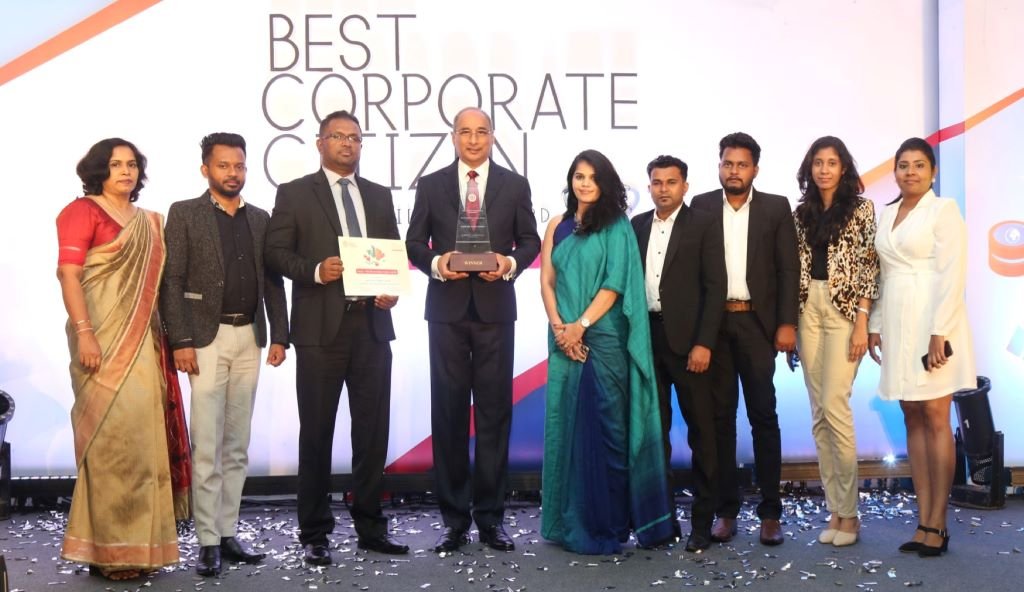
The sustainable innovations being pioneered at the Hayleys Group’s textile manufacturing sector are part of a broader commitment towards the policies and targets laid out in the Hayleys Lifecode. Leading the charge on the company’s eco-friendly fabric dyes is Hayleys Fabric PLC Head of Sustainability and United Nations Sustainable Development Goals Pioneer for Responsible Production, Leonie Vaas.
“While the fashion industry is associated with a large environmental footprint, we believe that sustainable innovations pioneered at Hayleys Fabric could pave the way to a truly circular model for fashion globally. If we can transition from synthetic to natural dyes completely, it is estimated that we could potentially reduce Green House Gas emissions by as much as 36%.
“This has immense positive implications for the environment, especially given that the global market for natural dye is projected to hit $ 5 billion by 2024. This growth is being driven by a new generation of conscious consumers that are genuinely passionate about supporting and rewarding brands that can demonstrate a real positive impact. ”
Hayleys Fabric PLC is a pioneer in textiles manufacturing in Sri Lanka capable of delivering end-to-end solutions from design to manufacture, and was the first apparel sector company to be listed on the Colombo Stock Exchange in 2003. Maintaining a production capacity of 4.5 million meters of fabric per month, the company stands as a leading partner to globally renowned fashion, apparel and accessories brands, including Nike, Victoria’s Secret, Calvin Klein, Tommy Hilfiger, Decathlon, NEXT, PVH, Asics, PINK Intimissimi, Marks and Spenser, and Calzedonia..
South Asia Textiles, a subsidiary of Hayleys Fabric PLC, is a leading manufacturer and exporter of textiles. The company commenced its commercial operations in 2004 and specialises in knitting, dyeing, finishing, printing, brushing, and sueding pre-shrunk fabric.
Hayleys Fabric and SAT are both signatories to the Science-Based Targets initiatives (SBTi) for reducing Greenhouse Gas (GHG) emissions and limiting global warming to1.5°C as part of a broader effort to achieve net-zero emissions by 2050. SAT also recently obtained the ISO 14001 and ISO 45001 certifications for elevating its environmental sustainability and employee health and safety systems on par with global best practices.


